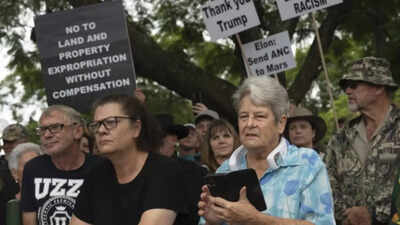
South Africa’s government has objected to the United States’ plan to accept white Afrikaners as refugees, saying the decision is politically motivated and unsupported by facts.
On Friday, South Africa’s foreign ministry confirmed it had raised concerns after US media reported that the first group of Afrikaners would arrive as early as Monday. The move stems from a refugee resettlement programme backed by US president Donald Trump, who has repeatedly accused South Africa of racially discriminating against white citizens, particularly Afrikaner farmers. The South African government called these accusations unfounded and stressed that they do not meet the legal definition of persecution under either domestic or international refugee law.
In a statement, the foreign ministry said deputy foreign minister Alvin Botes had communicated the concerns directly to his US counterpart, Christopher Landau. Pretoria also questioned the legal status of the Afrikaners being resettled and requested assurances that none faced pending criminal charges. Relations between the two countries have deteriorated in recent months, especially after Washington expelled South Africa’s ambassador in March.
One major point of friction is South Africa’s land expropriation law, which Trump claims allows the state to seize white-owned farmland. The South African government has insisted that the law permits expropriation only in the public interest and after fair negotiation. Despite earlier halting refugee arrivals, Trump announced in February a “rapid pathway” to US citizenship for Afrikaners, describing them as victims of racial injustice. White Afrikaners are mainly the descendants of Dutch settlers who began arriving in southern Africa over 300 years ago. Today, they form the majority within South Africa’s white population, which accounts for around 7.3 percent of the country’s total population.

 9 hours ago
33
9 hours ago
33




























 English (US)
English (US)